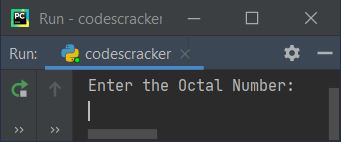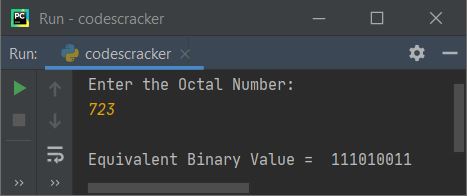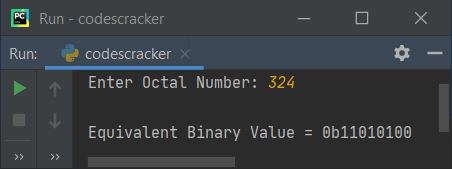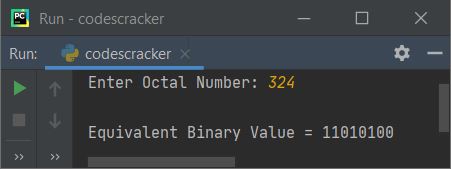- Python Basic Programs
- Python Program Examples
- Python Print Hello World
- Python Get Input from User
- Python Add Two Numbers
- Add Subtract Multiply Divide
- Python Check Even or Odd
- Python Check Prime or Not
- Python Check Alphabet or Not
- Python Check Vowel or Not
- Python Check Leap Year or Not
- Check Reverse equal Original
- Check Positive Negative Zero
- Python Check Armstrong or Not
- Python Check Palindrome or Not
- Python Check Perfect Number
- Python Find Reverse of Number
- Python Count Digits in Number
- Python Add Digits of Number
- Sum of First and Last Digits
- Python Product of Mid Digits
- Sum of Squares of Digits
- Interchange Digits of Number
- Python Sum of n Numbers
- Python Print ASCII Values
- Python Swap Two Numbers
- Python Swap Two Variables
- Python Fahrenheit to Celsius
- Python Celsius to Fahrenheit
- Python Display Calendar
- Python Days into Years, Weeks
- Find Largest of Two Number
- Find Largest of Three Number
- Python Print Fibonacci Series
- Generate Armstrong Numbers
- Python Make Simple Calculator
- Python Add Binary Numbers
- Binary Number Multiplication
- Python Mathematical Programs
- Find Sum of Natural Numbers
- Find Average of n Numbers
- Python Print Multiplication Table
- Print Table using Recursion
- Python Find Average Percentage
- Python Find Grade of Student
- Find Square Root of Number
- Python Print Prime Numbers
- Find Numbers Divisible by
- Python Find Factors of Number
- Python Find Factorial of a Number
- Python Find HCF & LCM
- Python Kilometres to Miles
- Python Find Area of Square
- Python Find Area of Rectangle
- Python Find Area of Triangle
- Python Find Area of Circle
- Python Find Perimeter of Square
- Find Perimeter of Rectangle
- Python Find Perimeter of Triangle
- Find Circumference of Circle
- Python Simple Interest
- Python Solve Quadratic Equation
- Python Different Set of Operations
- Python Display Powers of 2
- Python Find nCr & nPr
- Python Pattern Programs
- Python Print Pattern Programs
- Python Print Diamond Pattern
- Python Print Floyd's Triangle
- Python Print Pascal's Triangle
- Python List Programs
- Python Count Even/Odd in List
- Python Positive/Negative in List
- Python Even Numbers in List
- Python Odd Numbers in List
- Python Sum of Elements in List
- Sum of Odd/Even Numbers
- Python Element at Even Position
- Python Element at Odd Position
- Python Search Element in List
- Python Largest Number in List
- Python Smallest Number in List
- Python Second Largest in List
- Python Second Smallest in List
- Python Insert Element in List
- Python Delete Element from List
- Python Multiply Numbers in List
- Swap Two Elements in List
- Python 1D Array Program
- Python Linear Search
- Python Binary Search
- Python Insertion Sort
- Python Bubble Sort
- Python Selection Sort
- Remove Duplicates from List
- Python Reverse a List
- Python Merge Two List
- Python Copy a List
- Python Conversion Programs
- Python Decimal to Binary
- Python Decimal to Octal
- Python Decimal to Hexadecimal
- Python Binary to Decimal
- Python Binary to Octal
- Python Binary to Hexadecimal
- Python Octal to Decimal
- Python Octal to Binary
- Python Octal to Hexadecimal
- Python Hexadecimal to Decimal
- Python Hexadecimal to Binary
- Python Hexadecimal to Octal
- Python Matrix Programs
- Python Add Two Matrices
- Python Subtract Two Matrices
- Python Transpose Matrix
- Python Multiply Matrices
- Python String Programs
- Python Print String
- Python Find Length of String
- Python Compare Two Strings
- Python Copy String
- Python Concatenate String
- Python Reverse a String
- Python Swap Two Strings
- Python Uppercase to Lowercase
- Python Lowercase to Uppercase
- Python Check Substring in String
- Python Count Character in String
- Count Repeated Characters
- Python Count Word in Sentence
- Python Count Each Vowels
- Python Capitalize Character
- Python Capitalize Word in String
- Python Smallest/Largest Word
- Remove Spaces from String
- Remove Duplicate Character
- Remove Vowels from String
- Remove Punctuation from String
- Python Remove Word in String
- Python Remove Duplicate Words
- WhiteSpace to Hyphens
- Replace Vowels with Character
- Replace Character in String
- Python Sort String in Alphabetical
- Sort Word in Alphabetical Order
- Extract Number from String
- Python Check Anagram Strings
- Python File Programs
- Python Read a File
- Python Write to File
- Python Append Text to File
- Python Copy Files
- Python Merge Two Files
- Python Counts Characters in File
- Python Count Words in File
- Python File Content in Reverse
- Python Lines Contains String
- Python Delete Line from File
- Python Capitalize Word in File
- Python Replace Text in File
- Replace Specific Line in File
- Python Find Size of File
- Python List Files in Directory
- Python Delete Files
- Python Misc Programs
- Python Reverse a Tuple
- Python Merge Two Dictionary
- Python bytes to String
- Python bytearray to String
- Generate Random Numbers
- Python Print Address of Variable
- Python Print Date and Time
- Python Get IP Address
- Python Shutdown/Restart PC
- Python Tutorial
- Python Tutorial
Python Program to Convert Octal to Binary
In this article, I've created some programs in Python, to convert octal number entered by user to its equivalent binary value. Here are the list of programs:
- Octal to Binary using while Loop
- Using int() and bin() Methods
- Using Function
- Using Class
Note - Before creating these programs, if you're not aware about steps used for the conversion, then refer to Octal to Binary Formula and Example to get every required things.
Octal to Binary using while Loop
To convert octal to binary number in Python, you have to ask from user to enter any octal number, then convert that number into its binary equivalent. The question is, write a Python program to convert octal number to binary using while loop. Here is its answer:
print("Enter the Octal Number: ") octnum = int(input()) rev = 0 chk = 0 while octnum!=0: rem = octnum%10 if rem>7: chk = 1 break rev = rem + (rev*10) octnum = int(octnum/10) if chk == 0: octnum = rev binnum = "" while octnum!=0: rem = octnum%10 if rem==0: binnum = binnum + "000" elif rem==1: binnum = binnum + "001" elif rem==2: binnum = binnum + "010" elif rem==3: binnum = binnum + "011" elif rem==4: binnum = binnum + "100" elif rem==5: binnum = binnum + "101" elif rem==6: binnum = binnum + "110" elif rem==7: binnum = binnum + "111" octnum = int(octnum/10) print("\nEquivalent Binary Value = ", binnum) else: print("\nInvalid Input!")
Here is its sample run:

Now supply the input say 723 as octal number and press ENTER key to convert and print its
equivalent binary value as shown in the snapshot given below:

The dry run of above program with user input 723 goes like:
- Initial values, octnum=723 (entered by user), rev=0, chk=0
- Now the condition (of while loop) octnum!=0 or 723!=0 evaluates to be true, therefore program flow goes inside the loop. This loop is created to reverse the entered octal number. Because, we've to convert binary equivalent of each and every digit. But using rem = octnum%10 statement, the digit we get is the last digit at first time. Therefore we've reversed the number before conversion
- Inside the loop, octnum%10 or 723%10 or 3 gets initialized to rem. So rem=3
- Now the condition (of if) rem>7 or 3>7 evaluates to be false, therefore the program flow does not goes inside this if's body. Here we've checked whether any digit is greater than 7 or not. Because 8, 9 are both invalid octal digits
- Now rem + (rev*10) or 3 + (0*10) or 3 gets initialized to rev
- int(octnum/10) or int(723/10) or 72 gets initialized to octnum
- Program flow goes back and evaluates the condition of while loop again with new value of octnum.
- That is, the condition octnum!=0 or 72!=0 evaluates to be true again, therefore program flow again goes inside the loop. This process continues until the condition evaluates to be false
- In this way, after exiting from the loop when its condition evaluates to be false, the variable rev holds its value as 327. Therefore rev=327
- Now the condition chk==0 or 0==0 evaluates to be true, therefore program flow goes inside the loop
- rev or 327 gets initialized to octnum. And "" gets initialized to binnum. That is, a string variable binnum with empty content gets defined
- Now the condition (of inner while loop) octnum!=0 or 327!=0 evaluates to be true, therefore program flow goes inside the loop
- And octnum%10 or 327%10 or 7 gets initialized to rem
- Since the value of rem is 7, therefore the condition of last elif, that is rem==7 or 7==7 evaluates to be true, therefore binnum + "111" or "" + "111" or "111" gets initialized to binnum
- Then int(octnum/10) or int(327/10 or 32 gets initialized to octnum
- Now program flow goes back and evaluates the condition of while loop (inner) again
- That is, the condition octnum!=0 or 32!=0 evaluates to be true again, therefore program flow goes inside the loop again. This process continues until the condition evaluates to be false
- In this way, the given octal value gets converted into its equivalent binary value
- Now print the value of binnum after exiting from the loop
Octal to Binary using int() and bin()
This program uses int() and bin(), predefined methods of Python to do the same job as of previous program creating using complete user-defined code. The int() is used to convert a value passed as its argument to its integer equivalent. Whereas bin() returns binary equivalent of value passed as its argument.
print("Enter Octal Number: ", end="") onum = input() bnum = int(onum, 8) bnum = bin(bnum) print("\nEquivalent Binary Value =", bnum)
Here is its sample run with user input 324:

Note - To skip first two characters, add [2:] just after bnum while printing. That is, replace the following statement:
print("\nEquivalent Binary Value =", bnum)
with the statement given below:
print("\nEquivalent Binary Value =", bnum[2:])
Now the output looks like, with same user input as of previous sample run:

Note - The end= is used to skip printing of an automatic newline using print()
Octal to Binary using Function
This program uses user-defined function named OctToBin() to convert octal to binary. The function takes a number (octal) as its argument and returns its equivalent binary value using int() and bin():
def OctToBin(o): return bin(int(o, 8)) print("Enter Octal Number: ", end="") onum = input() bnum = OctToBin(onum) print("\nEquivalent Binary Value =", bnum[2:])
Octal to Binary using Class
This is the last program of this article, created using a class named CodesCracker. Class is an object-oriented feature of Python.
class CodesCracker: def OctToBin(self, o): return bin(int(o, 8)) print("Enter Octal Number: ", end="") onum = input() obj = CodesCracker() bnum = obj.OctToBin(onum) print("\nEquivalent Binary Value =", bnum[2:])
An object obj of class CodesCracker is created to access its member function, OctToBin() using dot (.) operator.
Same Program in Other Languages
« Previous Program Next Program »